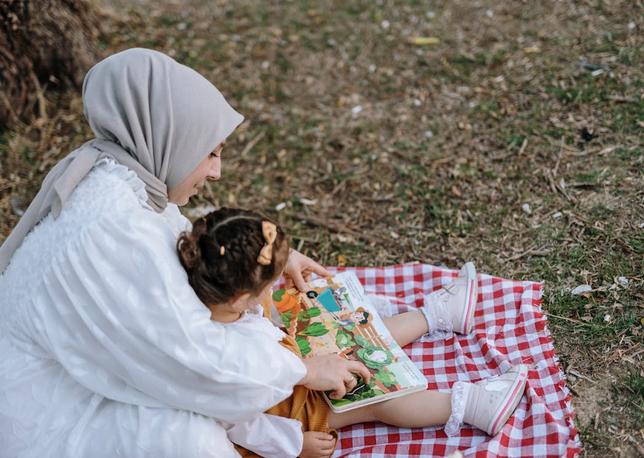ഇസ്ലാമിലെ സ്നേഹം: ദൈവികബന്ധത്തിന്റെ ആത്മാവ്

ഇസ്ലാമിലെ സ്നേഹം: ആത്മീയതയും ദൈവികബന്ധവും രൂപപ്പെടുത്തുന്ന ശക്തി
ആമുഖം : സ്നേഹം—ഇസ്ലാമിന്റെ ശ്വാസം
ഇസ്ലാം നിയമങ്ങളുടെയും വിധികളുടെയും സമാഹാരമല്ല; അത് ഹൃദയങ്ങളെ ബന്ധിപ്പിക്കുന്ന, ആത്മാക്കളെ ശുദ്ധീകരിക്കുന്ന ഒരു ദൈവിക മാർഗമാണ്. ഈ മാർഗത്തിന്റെ കേന്ദ്രത്തിൽ നിലകൊള്ളുന്നത് **സ്നേഹം (മഹബ്ബ)**യാണ്. അല്ലാഹുവിനോടുള്ള സ്നേഹം, പ്രവാചകനോടുള്ള സ്നേഹം, മനുഷ്യരോടുള്ള സ്നേഹം, സൃഷ്ടികളോടുള്ള സ്നേഹം—ഇവയെല്ലാം ചേർന്നതാണ് ഇസ്ലാമിന്റെ ആത്മാവ്. സ്നേഹമില്ലാത്ത ആരാധന ശൂന്യമാണ്; സ്നേഹത്തോടെ ചെയ്ത ഓരോ പ്രവൃത്തിയും ആരാധനയായി മാറുന്നു.
“അവൻ വിശ്വാസികളുടെ ഹൃദയങ്ങളിൽ സ്നേഹം സ്ഥാപിച്ചു.”
(സൂറത്തുൽ അൻഫാൽ 8:63)
സ്നേഹത്തിന്റെ ദൈവിക ഉറവിടം
അല്ലാഹു—സ്നേഹത്തിന്റെ മൂലസ്രോതസ്
സ്നേഹം മനുഷ്യനിൽ ഉദിക്കുന്ന ഒരു വികാരമല്ല മാത്രം; അത് അല്ലാഹുവിൽ നിന്നുള്ള ഒരു ദാനം തന്നെയാണ്. ഖുർആൻ അല്ലാഹുവിനെ “അത്യന്തം കരുണയുള്ളവൻ” എന്നും “സ്നേഹിക്കുന്നവൻ” എന്നും പരിചയപ്പെടുത്തുന്നു.
“നിശ്ചയം, എന്റെ رب്ബ് അത്യന്തം കരുണയും സ്നേഹവും ഉള്ളവനാണ്.”
(സൂറത്തുൽ ഹൂദ് 11:90)
അല്ലാഹുവിന്റെ സ്നേഹം സൃഷ്ടികളോട് നിബന്ധനകളില്ലാതെ ഒഴുകുന്നു. അവൻ മനുഷ്യനെ സൃഷ്ടിച്ചത് സ്നേഹത്തോടെ, നിലനിർത്തുന്നത് കരുണയോടെ.
അല്ലാഹുവിന്റെ സ്നേഹത്തിന്റെ അടയാളങ്ങൾ
ജീവിതത്തിലെ അനുഗ്രഹങ്ങൾ, ക്ഷമയുടെ വാതിലുകൾ, പശ്ചാത്താപത്തിന് ലഭിക്കുന്ന അവസരങ്ങൾ—ഇവയെല്ലാം അല്ലാഹുവിന്റെ സ്നേഹത്തിന്റെ അടയാളങ്ങളാണ്.
“അവൻ നിങ്ങളോട് സ്നേഹം കാണിക്കുന്നവനാണ്.”
(സൂറത്തുൽ ബുറൂജ് 85:14)
അല്ലാഹുവിനോടുള്ള സ്നേഹം: വിശ്വാസത്തിന്റെ ഹൃദയം
ആരാധന സ്നേഹത്തിന്റെ പ്രകടനം
ഇസ്ലാമിൽ ആരാധന ഭയത്തിൽ മാത്രം അധിഷ്ഠിതമല്ല; അത് സ്നേഹത്തിൽ നിന്നു ഉദിക്കുന്ന ഒരു സമർപ്പണമാണ്. നമസ്കാരം, നോമ്പ്, ദുആ—ഇവയെല്ലാം അല്ലാഹുവിനോടുള്ള സ്നേഹത്തിന്റെ ഭാഷകളാണ്.
“വിശ്വാസികൾ അല്ലാഹുവിനെ അത്യന്തം സ്നേഹിക്കുന്നു.”
(സൂറത്തുൽ ബഖറ 2:165)
സ്നേഹത്തിലൂടെ അടുത്താകൽ
അല്ലാഹുവിനെ സ്നേഹിക്കുന്ന ഹൃദയം അവനോട് അടുത്താകാൻ ആഗ്രഹിക്കുന്നു. ആ സമീപ്യതയാണ് ആത്മാവിന് സമാധാനം നൽകുന്നത്.
“അല്ലാഹുവിന്റെ സ്മരണയിലൂടെ ഹൃദയങ്ങൾ ശാന്തമാകുന്നു.”
(സൂറത്തുർ റഅ്ദ് 13:28)
പ്രവാചകൻ മുഹമ്മദ് ﷺ നോടുള്ള സ്നേഹം
സ്നേഹത്തിന്റെ ജീവിക്കുന്ന മാതൃക
പ്രവാചകൻ മുഹമ്മദ് ﷺ ഇസ്ലാമിക സ്നേഹത്തിന്റെ ഏറ്റവും പൂർണ്ണമായ രൂപമാണ്. അദ്ദേഹം സ്നേഹത്തോടെ പഠിപ്പിച്ചു, സ്നേഹത്തോടെ തിരുത്തി, സ്നേഹത്തോടെ ക്ഷമിച്ചു.
“നാം നിന്നെ ലോകങ്ങൾക്ക് കരുണയായി അയച്ചിരിക്കുന്നു.”
(സൂറത്തുൽ അൻബിയാ 21:107)
പ്രവാചകസ്നേഹം വിശ്വാസത്തിന്റെ ഭാഗം
പ്രവാചകനോടുള്ള സ്നേഹം വെറും വികാരമല്ല; അത് വിശ്വാസത്തിന്റെ അളവുകോലാണ്.
“നിങ്ങളിൽ ഒരുത്തനും, ഞാൻ അവനു തന്റെ മാതാപിതാക്കളിലും മക്കളിലും എല്ലാവരിലും കൂടുതൽ പ്രിയങ്കരനാകുന്നതുവരെ, സത്യവിശ്വാസിയാകുന്നില്ല.”
(ഹദീസ് ആശയം)
മനുഷ്യരോടുള്ള സ്നേഹം
വിശ്വാസികൾ തമ്മിലുള്ള സ്നേഹം
ഇസ്ലാം ഒരു വ്യക്തിഗത മതമല്ല; അത് ഒരു സമൂഹത്തെ രൂപപ്പെടുത്തുന്ന ദൈവിക സംവിധാനംയാണ്. വിശ്വാസികൾ തമ്മിലുള്ള സ്നേഹമാണ് ആ സമൂഹത്തിന്റെ അടിത്തറ.
“വിശ്വാസികൾ പരസ്പരം സഹോദരന്മാരാണ്.”
(സൂറത്തുൽ ഹുജുറാത് 49:10)
കരുണയും സൗഹൃദവും
സ്നേഹം കരുണയായി, സഹായമായി, സഹനമായി പ്രകടമാകണം. മറ്റുള്ളവരുടെ വേദന അനുഭവിക്കാനാകുന്ന ഹൃദയമാണ് ഇസ്ലാം വളർത്തുന്നത്.
“അവർ സ്വയം ആവശ്യമുള്ളപ്പോഴും മറ്റുള്ളവരെ മുൻഗണന നൽകുന്നു.”
(സൂറത്തുൽ ഹഷ്ർ 59:9)
കുടുംബബന്ധങ്ങളിലെ സ്നേഹം
ദാമ്പത്യത്തിലെ സ്നേഹവും കരുണയും
ഇസ്ലാമിക കുടുംബം അധികാരത്തിന്റെ അടിത്തറയിൽ അല്ല, സ്നേഹത്തിന്റെ അടിത്തറയിലാണ് പണിതിരിക്കുന്നത്.
“അവൻ നിങ്ങളിൽ സ്നേഹവും കരുണയും സ്ഥാപിച്ചു.”
(സൂറത്തുർ റൂം 30:21)
ഭർത്താവും ഭാര്യയും പരസ്പരം അല്ലാഹുവിലേക്കുള്ള യാത്രയിലെ സഹയാത്രികരാണ്.
മാതാപിതാക്കളോടുള്ള സ്നേഹം
മാതാപിതാക്കളോടുള്ള സ്നേഹം ഇസ്ലാമിൽ ആരാധനയുടെ തലത്തിലേക്കുയരുന്നു.
“നിന്റെ رب്ബ് വിധിച്ചിരിക്കുന്നു: അവനല്ലാതെ മറ്റാരെയും ആരാധിക്കരുത്; മാതാപിതാക്കളോട് നന്മ കാണിക്കണം.”
(സൂറത്തുൽ ഇസ്റാഅ് 17:23)
സൃഷ്ടികളോടുള്ള സ്നേഹം
മൃഗങ്ങളോടും പ്രകൃതിയോടും
ഇസ്ലാം മനുഷ്യനെ സൃഷ്ടികളുടെ അധിപനല്ല, സംരക്ഷകനായാണ് കാണുന്നത്. മൃഗങ്ങളോടുള്ള കരുണ പോലും വലിയ പ്രതിഫലത്തിന് കാരണമാകുന്നു.
“ഭൂമിയിൽ ഉള്ളവരോട് കരുണ കാണിക്കൂ; ആകാശത്തിലുള്ളവൻ നിങ്ങളോട് കരുണ കാണിക്കും.”
(ഹദീസ് ആശയം)
പ്രകൃതിയുമായുള്ള ആത്മീയബന്ധം
ഭൂമി, ജലം, വൃക്ഷങ്ങൾ—ഇവയെല്ലാം അല്ലാഹുവിന്റെ അടയാളങ്ങളാണ്.
“ഭൂമിയിലും ആകാശത്തിലും അടയാളങ്ങളുണ്ട്.”
(സൂറത്തുൽ ജാഥിയ 45:3)
സ്നേഹവും ക്ഷമയും
ക്ഷമ—സ്നേഹത്തിന്റെ ഉയർന്ന രൂപം
ക്ഷമ പ്രതികാരത്തെക്കാൾ ശക്തമാണ്. ഇസ്ലാം സ്നേഹത്തിലൂടെ ക്ഷമിക്കാൻ മനുഷ്യനെ പ്രേരിപ്പിക്കുന്നു.
“ക്ഷമിക്കുന്നവരെ അല്ലാഹു സ്നേഹിക്കുന്നു.”
(സൂറത്തുൽ ആലു ഇംറാൻ 3:134)
ശത്രുക്കളോടുപോലും നന്മ
പ്രവാചകജീവിതം പഠിപ്പിക്കുന്നത്, സ്നേഹം വൈരത്തേക്കാൾ ശക്തമാണെന്ന സത്യമാണ്.
“നന്മയും തിന്മയും ഒരുപോലെയല്ല; നന്മയിലൂടെ തിന്മയെ തള്ളിക്കളയുക.”
(സൂറത്തുൽ ഫുസ്സിലത് 41:34)
സ്നേഹവും ദുആയും
ദുആ—സ്നേഹത്തിന്റെ സംഭാഷണം
ദുആ അല്ലാഹുവിനോടുള്ള സ്നേഹത്തിന്റെ സ്വകാര്യ സംഭാഷണമാണ്. അവിടെ ഹൃദയം തുറക്കപ്പെടുന്നു, കണ്ണീർ സാക്ഷിയാകുന്നു.
“എന്റെ ദാസന്മാർ എന്നെക്കുറിച്ച് നിന്നോട് ചോദിക്കുമ്പോൾ, ഞാൻ അടുത്തവനാണ്.”
(സൂറത്തുൽ ബഖറ 2:186)
സ്നേഹം ഇല്ലാതാകുമ്പോൾ
ഹൃദയങ്ങളുടെ കാഠിന്യം
സ്നേഹം നഷ്ടപ്പെട്ടാൽ ആരാധന വരണ്ടതാകുന്നു, ബന്ധങ്ങൾ തകർന്നുപോകുന്നു.
“അവരുടെ ഹൃദയങ്ങൾ കഠിനമായി.”
(സൂറത്തുൽ ഹദീദ് 57:16)
ആത്മീയ ശൂന്യത
സ്നേഹമില്ലാത്ത വിശ്വാസം ഭയത്തിലേക്ക് ചുരുങ്ങും; സ്നേഹമുള്ള വിശ്വാസം പ്രത്യാശയായി വിരിയുന്നു.
ആഖിറത്തിലെ സ്നേഹം
അല്ലാഹുവിന്റെ സ്നേഹത്തിന് അർഹരാകൽ
ഇഹലോകത്ത് അല്ലാഹുവിനെ സ്നേഹിച്ച് ജീവിക്കുന്നവർക്ക് ആഖിറത്തിൽ അവന്റെ സ്നേഹമാണ് ഏറ്റവും വലിയ പ്രതിഫലം.
“അല്ലാഹു അവരെ സ്നേഹിക്കുന്നു; അവർ അവനെ സ്നേഹിക്കുന്നു.”
(സൂറത്തുൽ മാഇദ 5:54)
ജന്നത്ത്—സ്നേഹത്തിന്റെ പൂർണ്ണത
ജന്നത്ത് ഭൗതികസുഖങ്ങളുടെ സ്ഥലം മാത്രമല്ല; അത് അല്ലാഹുവിന്റെ സ്നേഹത്തിന്റെ പൂർണ്ണ അനുഭവമാണ്.
“അല്ലാഹുവിന്റെ തൃപ്തിയാണ് അതിൽ ഏറ്റവും വലിയത്.”
(സൂറത്തുൽ തൗബ 9:72)
സമാപനം: സ്നേഹമാണ് ഇസ്ലാമിന്റെ ആത്മാവ്
ഇസ്ലാം സ്നേഹമില്ലാതെ മനസ്സിലാക്കാനാവില്ല. സ്നേഹമാണ് വിശ്വാസത്തെ ജീവിപ്പിക്കുന്നത്, ആരാധനയെ സുന്ദരമാക്കുന്നത്, സമൂഹത്തെ ബന്ധിപ്പിക്കുന്നത്. അല്ലാഹുവിനെ സ്നേഹിക്കുന്ന ഹൃദയം മനുഷ്യരെയും സൃഷ്ടികളെയും സ്നേഹിക്കാൻ പഠിക്കുന്നു. അവിടെയാണ് യഥാർത്ഥ ഇസ്ലാം—നിയമമായി മാത്രമല്ല, ജീവിതമായി, സ്നേഹമായി, ആത്മീയ വെളിച്ചമായി നിലകൊള്ളുന്നത്.
“നിശ്ചയം, അല്ലാഹു സ്നേഹിക്കുന്നവരോടൊപ്പം തന്നെയാണ്.”
Please continue reading https://drlal.in/how-important-abundance-is-in-islam
